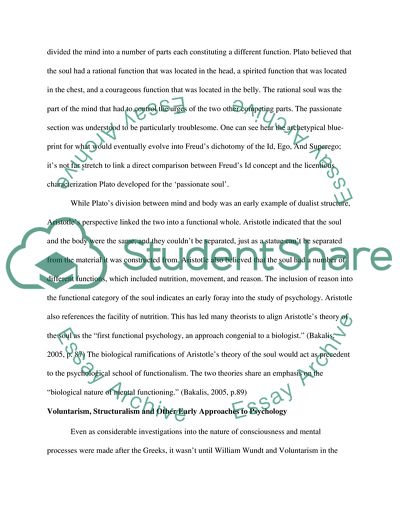Cite this document
(Voluntarism, Structuralism and Other Early Approaches to Psychology Coursework Example | Topics and Well Written Essays - 1250 words, n.d.)
Voluntarism, Structuralism and Other Early Approaches to Psychology Coursework Example | Topics and Well Written Essays - 1250 words. https://studentshare.org/psychology/1731141-evolution-of-psychology-refer-to-instruction-for-details
Voluntarism, Structuralism and Other Early Approaches to Psychology Coursework Example | Topics and Well Written Essays - 1250 words. https://studentshare.org/psychology/1731141-evolution-of-psychology-refer-to-instruction-for-details
(Voluntarism, Structuralism and Other Early Approaches to Psychology Coursework Example | Topics and Well Written Essays - 1250 Words)
Voluntarism, Structuralism and Other Early Approaches to Psychology Coursework Example | Topics and Well Written Essays - 1250 Words. https://studentshare.org/psychology/1731141-evolution-of-psychology-refer-to-instruction-for-details.
Voluntarism, Structuralism and Other Early Approaches to Psychology Coursework Example | Topics and Well Written Essays - 1250 Words. https://studentshare.org/psychology/1731141-evolution-of-psychology-refer-to-instruction-for-details.
“Voluntarism, Structuralism and Other Early Approaches to Psychology Coursework Example | Topics and Well Written Essays - 1250 Words”. https://studentshare.org/psychology/1731141-evolution-of-psychology-refer-to-instruction-for-details.


